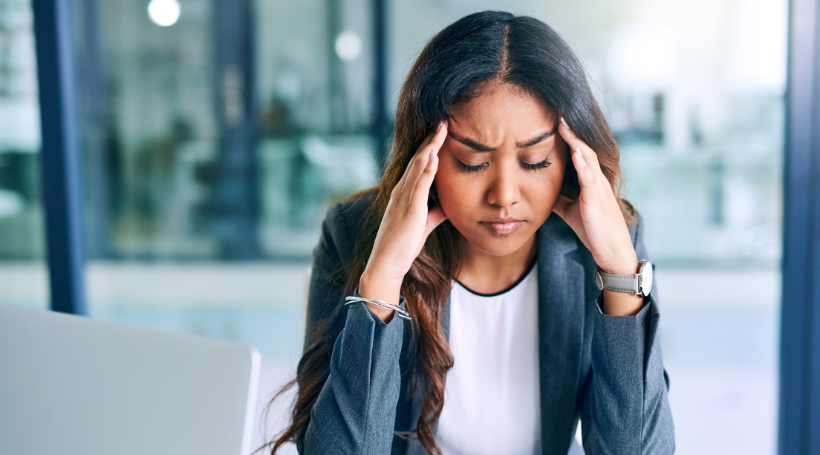Not many people think of physical ailments when they hear (or say) “I’m stressed.” But that doesn’t mean our mental health isn’t affecting our physical health.
“There are short- and long-term health issues that can develop from being stressed – and there’s a lot to be stressed about these days,” says Gerald Orlando, DO, a primary care/family medicine physician at Inspira Health. “For the short term, symptoms of stress can be similar to how anxiety presents, because you’re constantly in fight or flight.”
In the short run, stress can cause headaches, insomnia and G.I. issues like bloating, trouble eating, nausea and feeling sweaty. It can even cause heart problems. Prolonged stress can eventually contribute to ailments like asthma, skin conditions, high blood pressure, kidney problems and depression.

Gerald Orlando, DO at Inspira Health
“Our reaction to stress – whether you’re not eating enough, stop going to the gym, don’t drink enough water or don’t sleep enough – can build until it’s like an avalanche that brings on bigger health problems,” Orlando says. “That’s why it’s important for us to manage our stress, so that we don’t get to that point.”
But don’t stress (see what we did there?), Orlando has several methods to keep the avalanche at bay. But his biggest tip is to try them all and see what combination works for you.
Write
Journaling can do wonders for dealing with stressful thoughts, says Orlando. “Sometimes writing down what you’re thinking helps them become concrete, and then you can read them and address them.”
Breathe
If you feel yourself starting to spiral, remember to breathe (but not the way you usually do). Orlando recommends trying box breathing. It’s when you take a slow breath in for four counts, hold it for four counts, then exhale for four counts and then hold for four counts. Sometimes it helps to imagine drawing a box with this exercise.
Flex
Orlando’s favorite method, and the one he uses most, is called progressive muscle relaxation. “It’s often recommended people do this while lying in bed,” he says. “You tense up each muscle in your body individually and then relax it, starting with your eyebrows and going all the way to your toes. By the time you get to your toes, you’ll feel better.”
Talk
Isolation is one of the worst things for someone feeling stressed, and it usually leads to feeling out of control. Orlando recommends reaching out to someone – whether that’s a friend, a family member or even a professional – to help you navigate your stress.
“Talking to someone can help relieve some of the stress we feel, but building a relationship with your primary care provider, especially someone you feel comfortable with, can help in other ways too,” he says. “By seeing them regularly, you can catch health issues early and lower your risk.”










